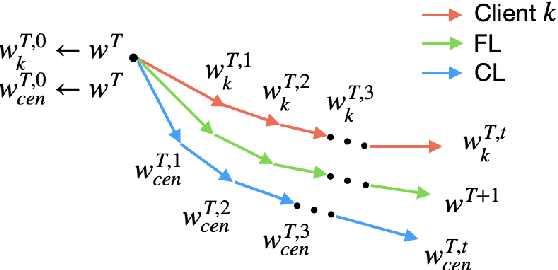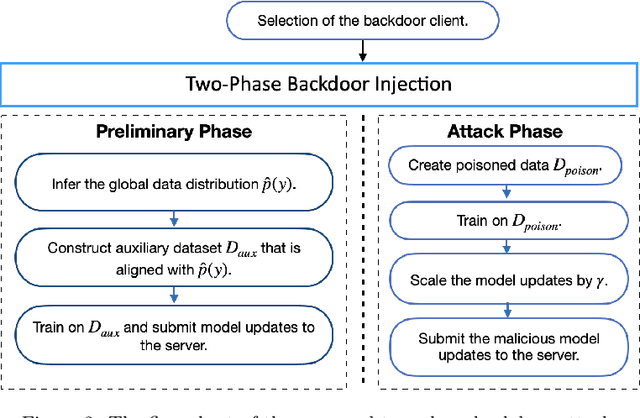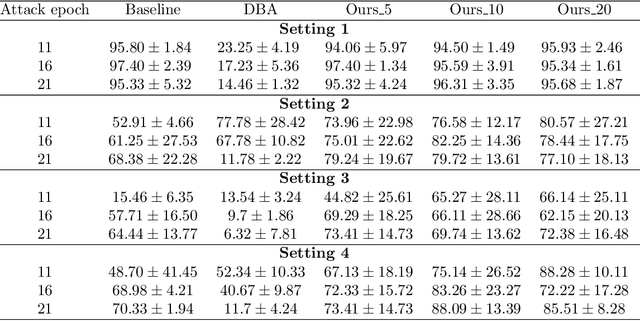Xueyang Hu
Technical Report: On the Convergence of Gossip Learning in the Presence of Node Inaccessibility
Jan 17, 2024Abstract:Gossip learning (GL), as a decentralized alternative to federated learning (FL), is more suitable for resource-constrained wireless networks, such as FANETs that are formed by unmanned aerial vehicles (UAVs). GL can significantly enhance the efficiency and extend the battery life of UAV networks. Despite the advantages, the performance of GL is strongly affected by data distribution, communication speed, and network connectivity. However, how these factors influence the GL convergence is still unclear. Existing work studied the convergence of GL based on a virtual quantity for the sake of convenience, which fail to reflect the real state of the network when some nodes are inaccessible. In this paper, we formulate and investigate the impact of inaccessible nodes to GL under a dynamic network topology. We first decompose the weight divergence by whether the node is accessible or not. Then, we investigate the GL convergence under the dynamic of node accessibility and theoretically provide how the number of inaccessible nodes, data non-i.i.d.-ness, and duration of inaccessibility affect the convergence. Extensive experiments are carried out in practical settings to comprehensively verify the correctness of our theoretical findings.
Technical Report: Assisting Backdoor Federated Learning with Whole Population Knowledge Alignment
Jul 25, 2022



Abstract:Due to the distributed nature of Federated Learning (FL), researchers have uncovered that FL is vulnerable to backdoor attacks, which aim at injecting a sub-task into the FL without corrupting the performance of the main task. Single-shot backdoor attack achieves high accuracy on both the main task and backdoor sub-task when injected at the FL model convergence. However, the early-injected single-shot backdoor attack is ineffective because: (1) the maximum backdoor effectiveness is not reached at injection because of the dilution effect from normal local updates; (2) the backdoor effect decreases quickly as the backdoor will be overwritten by the newcoming normal local updates. In this paper, we strengthen the early-injected single-shot backdoor attack utilizing FL model information leakage. We show that the FL convergence can be expedited if the client trains on a dataset that mimics the distribution and gradients of the whole population. Based on this observation, we proposed a two-phase backdoor attack, which includes a preliminary phase for the subsequent backdoor attack. In the preliminary phase, the attacker-controlled client first launches a whole population distribution inference attack and then trains on a locally crafted dataset that is aligned with both the gradient and inferred distribution. Benefiting from the preliminary phase, the later injected backdoor achieves better effectiveness as the backdoor effect will be less likely to be diluted by the normal model updates. Extensive experiments are conducted on MNIST dataset under various data heterogeneity settings to evaluate the effectiveness of the proposed backdoor attack. Results show that the proposed backdoor outperforms existing backdoor attacks in both success rate and longevity, even when defense mechanisms are in place.
 Add to Chrome
Add to Chrome Add to Firefox
Add to Firefox Add to Edge
Add to Edge